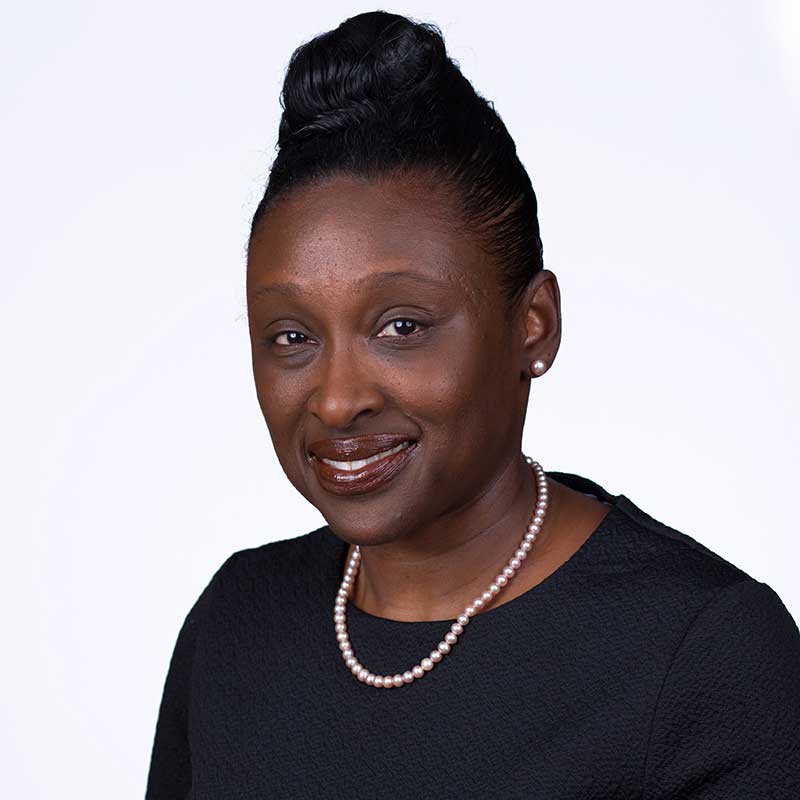The LGA’s Be a Councillor campaign is working with councils to encourage people from all walks of life to stand in next year’s local elections. Here, Cllr Paulette Hamilton writes about how she became a councillor and, below, Cllr Anntoinette Bramble talks about the importance of representation.
When I was asked to write this article, I said yes straight away.
It is important that articles like these are written to encourage young people, older people, and women from the black, Asian and minority ethnic (BAME) communities to feel confident enough to put themselves forward to enter public life.
I became a councillor in 2004, when I was a qualified nurse. I had worked as a nursing sister in the community for several years and had recently moved to the Royal College of Nursing as a development officer and was really enjoying it.
I have always liked to challenge things and this role really enabled me to do that and support nurses at the same time. It gave me the opportunity to meet many politicians, supported and encouraged by my then director who really wanted to encourage the development of BAME nurses.
The Labour Party was encouraging people from the BAME communities to apply to become local councillors. A lifelong friend (a councillor) and my director encouraged me to apply – and sometimes you do need that encouragement to take the first steps.
I was a married woman, black, with five children. I had just finished breastfeeding, was juggling childcare and holding down a full-time job. I never thought I would be suitable, or that I could cope with public life.
Sixteen years on, my daughter is at university, I am the Cabinet Member for Adult Social Care and Health in Birmingham and the Labour lead nationally within the LGA, and currently Vice-Chair of the LGA’s Community Wellbeing Board.
Your start point is not your finish point; never allow others to tell you what you can and cannot do. The role of a councillor can be challenging. It is hard work, especially in the middle of a pandemic, but it is so rewarding.
If you are a woman, from the black and minority communities, can I encourage you to come forward. Things are getting better, regarding childcare, support and work/life balance. We need more women from our rich communities to come forward, to represent our views of the society we live in today.
It is not easy, putting yourself forward to serve. Working in public life you can make a difference, so please try.
Q&A: leading the way

Councillor Anntoinette Bramble is an LGA Deputy Chair and Deputy Mayor of Hackney Council
Q Why did you decide to stand for election?
A Representation is important. I rarely saw people who looked like me in politics and so I became the change I wanted to see.
I think it is important for Hackney – a place that is home to a high percentage of black residents – to have positive representations of people who look like them.
I also wanted to be an advocate for my community and see my role as facilitating change that shapes our communities and so many people’s lives.
Q What advice do you have for people considering standing for election?
A Focus on what you can bring rather than what you cannot. You don’t have to be born into a political dynasty; it’s about using the skills you have in your approach to politics.
You may be concerned about people disagreeing with you or receiving abuse from social media but don’t let that stop you – you not standing for election won’t change that. Standing will help, as working in politics means you’re in one of the professions to make change.
The most important thing, if you’re going to stand, is to be a strong advocate for your community. You are there to champion their needs and be their voice, and by working as a team alongside your colleagues, you can help improve your local communities.
Q What is your proudest contribution or achievement in local government?
A Hackney Young Futures Commission. The young people leading the commission listened to more than 2,000 young people about their lived experience in the borough and they made recommendations. Give young people a platform and they provide solutions.
I’m pleased and humbled to be the first black Deputy Chair of the LGA but I certainly don’t want to be the last. I am more concerned with building the legacy for future leaders. That means staying focused on the day-to-day work of listening to the community and acting on its behalf.
I am pleased with the Black Curriculum that is starting in Hackney, which is important for all children. Every teacher in Hackney is fully equipped to provide dynamic lesson plans exploring the rich, complex and inspirational history of black Britain.
Black history is British history and through this understanding we can provide knowledge and create compassion, understanding and respect for everyone.